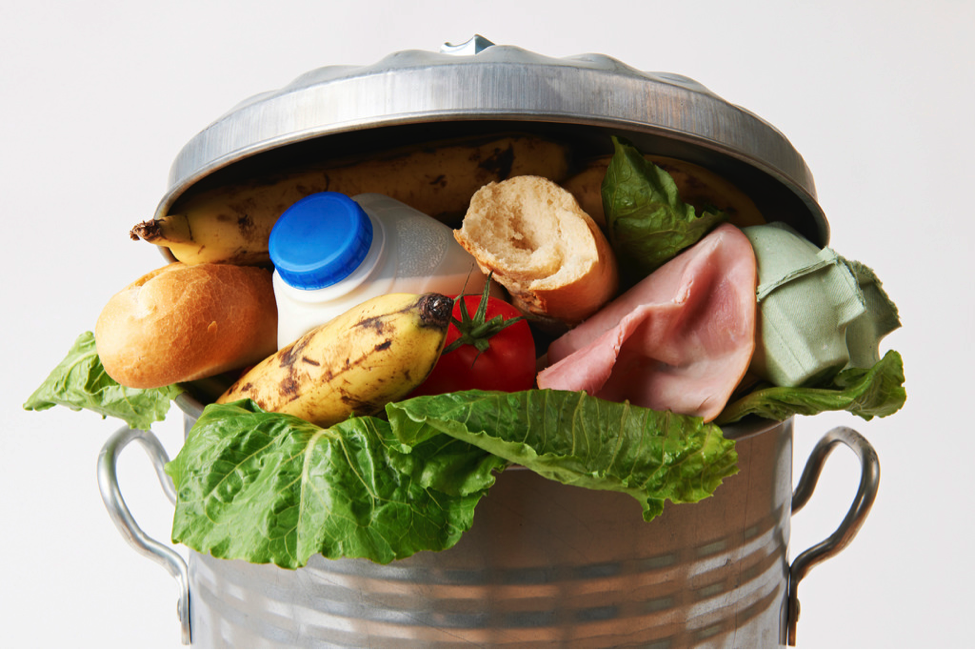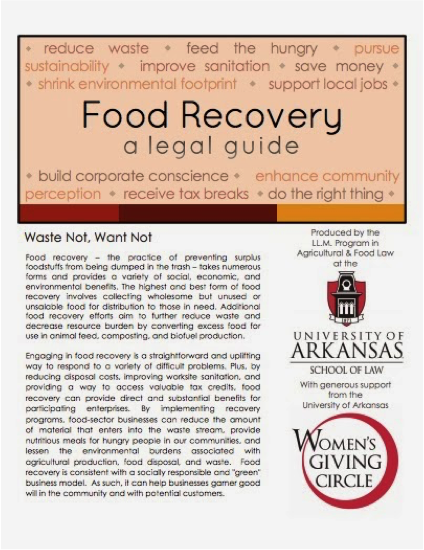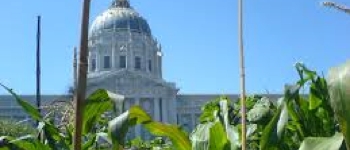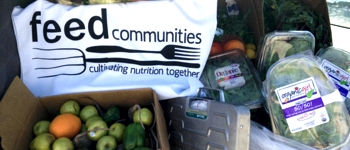Food Recovery Project
Mission
 The Food Recovery Project supports efforts to enhance sustainability and justice in
the U.S. food system by examining laws and proposing new policies that promote food
conservation. We use our expertise in agriculture and food law to explain the intersection
of existing laws and regulations and the dichotomy of food waste and hunger. By building
on our knowledge of the food system and engaging with diverse stakeholders, we recommend
new strategies and policies designed not only to reduce food waste, but also to ensure
that food and the recourses embedded in it are put to the highest and best possible
uses based on community needs.
The Food Recovery Project supports efforts to enhance sustainability and justice in
the U.S. food system by examining laws and proposing new policies that promote food
conservation. We use our expertise in agriculture and food law to explain the intersection
of existing laws and regulations and the dichotomy of food waste and hunger. By building
on our knowledge of the food system and engaging with diverse stakeholders, we recommend
new strategies and policies designed not only to reduce food waste, but also to ensure
that food and the recourses embedded in it are put to the highest and best possible
uses based on community needs.
What is food recovery?
Food recovery—the redistribution of excess food to people in need—is a low-risk, high-benefit way to reduce waste, feed those experiencing hunger and shrink an enterprise’s environmental footprint. Additionally, food recovery can benefit enterprises by enhancing sustainability, saving money, improving sanitation, building corporate conscience, and creating more meaningful relationships between food businesses and customers.
At the Food Recovery Project’s inception, we focused on providing resources and legal information to encourage and support businesses in developing and implementing effective food recovery programs. Building on the success of these initiatives, and in response to growing awareness of the food waste problem and the need for strategic, systems-oriented solutions, the Food Recovery Project expanded its work to include policy guidance, proposing paradigm shifts in our food systems, and leading in the field of food conservation.
We actively explore the development of law and policy tools that both support the emerging food-waste solutions sector and advance justice and equity in the food system. The Food Recovery Project leadership and student researches focus on policies that do more than just reduce waste: we also work to promote nutrient cycling, healthy soils, mainstreaming new food sources from parts previously presumed inedible, food sharing, dignified donations, and the development of a cultural ethic that holds food in high regard.
With a little bit of planning and some minor changes in harvesting, inventory management, and disposal practices, food sector businesses can reduce their consumption, increase the amount, quality, and variety of donations to food banks, and reduce the amount of food waste going to landfills.
History
 The Food Recovery Project began in 2012, when the Director of the LL.M Program, Susan
Schneider, was awarded a grant from the UofA’s Women’s Giving Circle.
The Food Recovery Project began in 2012, when the Director of the LL.M Program, Susan
Schneider, was awarded a grant from the UofA’s Women’s Giving Circle.
James Haley served as the FRP’s first Research Fellow and authored a Legal Guide to the Bill Emerson Good Samaritan Food Donation Act during his Fellowship.
Food waste and food recovery issues are referenced throughout the courses offered in the LL.M. Program.
Visiting Assistant Professor Nicole Civita authored numerous reports on food waste and recovery including Food Recovery: A Legal Guide, started the Food Recovery Project Blog, and conducted an assessment of local food recovery activity in Northwest Arkansas. Nicole remains with the project as an adjunct professor in the LL.M. Program.

Food Recovery in Northwest Arkansas
Food insecurity is an especially pervasive and crippling problem in Arkansas. Fortunately, organizations are working to end food insecurity.

Food Recovery Project in the News
Find out about food waste, farm bills, federal policy, and paradigm shifts.






